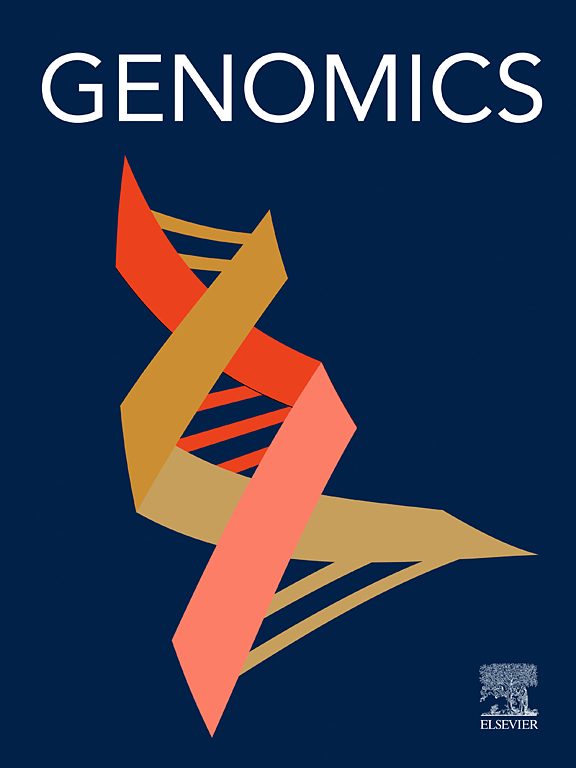脂质代谢和差异表达基因的综合分析揭示了甜瓜籽粒油脂积累。
IF 3.4
2区 生物学
Q2 BIOTECHNOLOGY & APPLIED MICROBIOLOGY
引用次数: 0
摘要
甜瓜(Cucumis melo L. var. agrestis Naud.)是一种新型油料作物,其种子中含有大量的脂质。然而,其脂质的高分辨率剖面和动态调节在很大程度上仍然未知。本研究利用UHPLC-MS/MS对脂质进行鉴定,并分析其动态变化。共鉴定出脂类分子2533个,包括7类47亚类,其中甘油脂类(41.02 %)和甘油磷脂类(28.11 %)的比例较高。此外,甘油脂的含量最高,特别是三酰基甘油脂类分子。此外,差异表达基因(DEGs)的表达模式与脂质积累密切相关,特别是在植物激素信号通路中。值得注意的是,供应充足的18:1-CoA,加上CmFAD2的高表达水平,是田间甜瓜种子中亚油酸含量高(68.56 %)的重要原因。本研究为进一步全面了解甜瓜的脂质特性,促进甜瓜的选育提供了依据。本文章由计算机程序翻译,如有差异,请以英文原文为准。
Integrated analysis of lipid metabolism and differentially expressed genes reveal seed oil accumulation in field muskmelon
Field muskmelon (Cucumis melo L. var. agrestis Naud.), a novel oil crop, contains a high amount of lipids in seeds. However, the high-resolution profiles and dynamic regulation of its lipids remain largely unknown. This study identified the lipids and analyzed their dynamic changes using UHPLC-MS/MS. We identified 2533 lipid molecules in the seeds, including 7 categories and 47 sub-classes, with the higher proportions of glycerolipids (41.02 %) and glycerophospholipids (28.11 %). Moreover, the content of glycerolipids was the highest, particularly for triacylglycerol lipid molecules. Additionally, the expression patterns of differentially expressed genes (DEGs) showed a close correlation with lipid accumulation, especially within the plant hormone signaling pathway. Notably, the sufficient supply of 18:1-CoA, coupled with a high expression level of CmFAD2, contributed significantly to the high linoleic acid (68.56 %) content in field muskmelon seeds. Our findings offer insights that could enhance the comprehensive understanding of lipids in field muskmelon, and facilitate the breeding of field muskmelon.
求助全文
通过发布文献求助,成功后即可免费获取论文全文。
去求助
来源期刊

Genomics
生物-生物工程与应用微生物
CiteScore
9.60
自引率
2.30%
发文量
260
审稿时长
60 days
期刊介绍:
Genomics is a forum for describing the development of genome-scale technologies and their application to all areas of biological investigation.
As a journal that has evolved with the field that carries its name, Genomics focuses on the development and application of cutting-edge methods, addressing fundamental questions with potential interest to a wide audience. Our aim is to publish the highest quality research and to provide authors with rapid, fair and accurate review and publication of manuscripts falling within our scope.
 求助内容:
求助内容: 应助结果提醒方式:
应助结果提醒方式:


